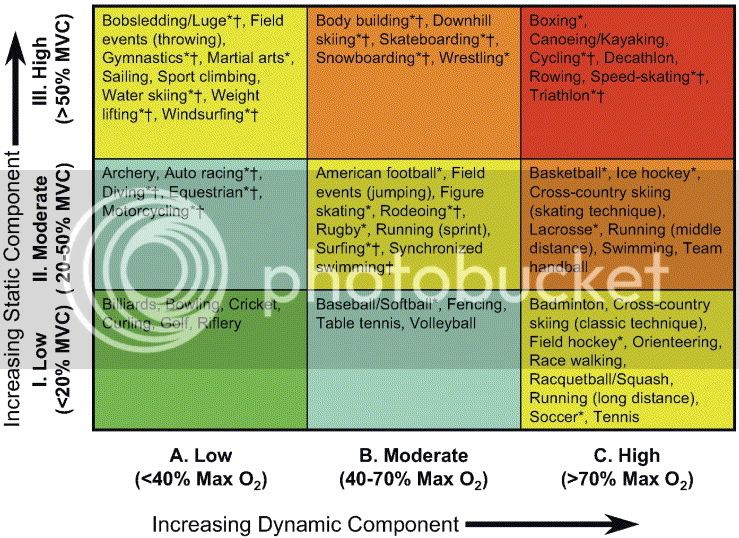Oh good, I don't see "firefighting" on any of the no-no groups... =)
I gather from the powers that be that I've gotta submit myself to a department physical at some point... That could be interesting....
"Do you know you have a murmur?????"

I think what's more important than running little lists and categorizing risk groups and the like is to have an individual approach.
My cardiologist knows my condition inside and out. He also knows what I'm doing, what kind of activities I engage in and how much I do it.
I know where my limits are, I know how to tell if I'm getting close to one or more of those limits and I make sure EVERYONE around me knows and understands that if I feel like I'm working too hard, I WILL stop, you can't tell me otherwise.
To me, those look more like "guidelines" than anything else, based on the most common type of valve repair/replacent using a sample group that encompasses the most "median" cases.
Autoracing is OK, but skateboarding is not?
Baseball is in two categories. Softball is OK, what about fast pitch, what if I get hit in the chest or the head (and I'm on anticoagulants)?
What about martial arts? Which? Thai-Chi, Yoga, and Qi Gong are all non-contact martial arts. They're generally slow, methodical, meditative movements intended to develope balance, tune motor control, and improve flexibility/mobility... They're not neccesarily fighting styles....
How is diving OK but swimming not?
Most cardiac rehab clinics have rowing machines.... How's that different than rowing in a boat besides the possibility of sinking or running aground???
Ummmm... Yeah, OK, whatever you say boss...
 Maybe this is intended for other people?
Maybe this is intended for other people?





